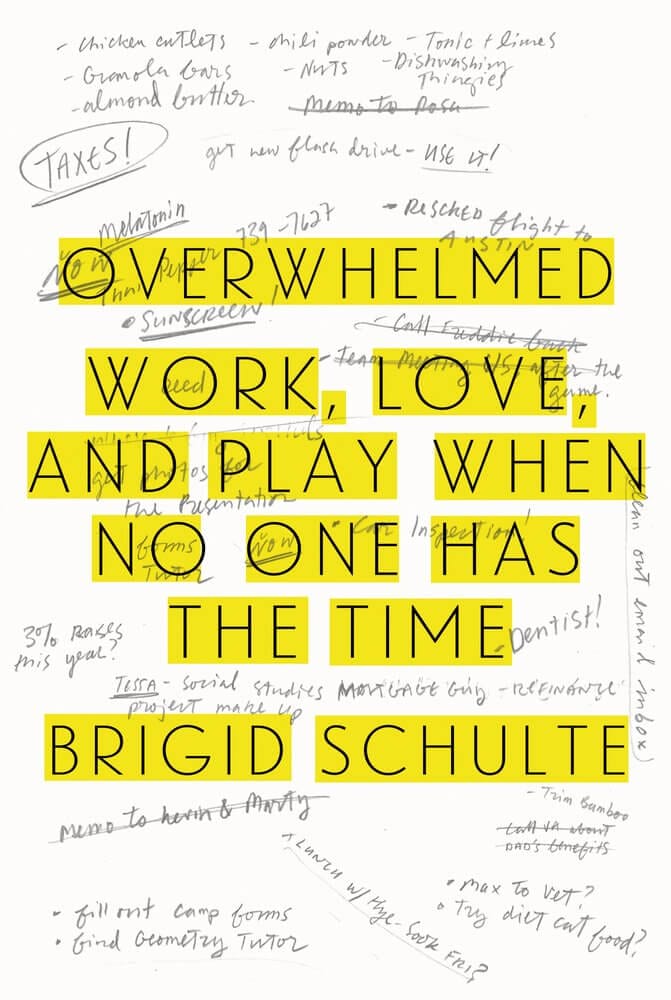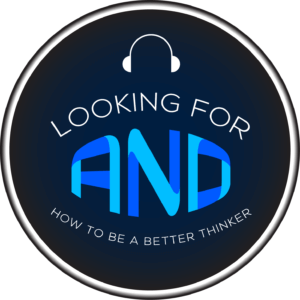The summer is coming to a close. Vacations are almost over and that feeling of being incredibly busy is creeping back as we start to see those annoyingly upbeat back-to-school commercials that remind us about spending more money than we have to on clothes, supplies and technology. In her 2014 book “Overwhelmed – Work, Love and Play When No One Has the Time,” Washington Post reporter (and working mother!) Brigid Schulte takes a painstakingly detailed look at modern life. Just reading it made me feel anxious…
Let’s start with what most of us already know from the research. It tells us that women tend to feel more overwhelmed than men. In the 1960s, only about 38% of mothers in the US worked outside of the home. Today, that figure has virtually doubled to 75%. According to multiple studies, women tend to feel more “crunched” than men do.
Now for some possible surprises from the research:
- Mothers are getting 3x the quality time with their kids vs 1960s.
- Only 8% of our time is spent outside.
- Men tend to feel happier with their wives around – the reverse is not necessarily true. (Sorry, Dad.)
- Married couples with more balance in the chores have more sex and higher satisfaction with the marriage.
- Gay couples are more likely to share work and tend to be happier.
- People who work less hours and take all of their vacation tend to be more productive and get better performance reviews. (This is my favorite!)
 Just 100 years ago, it was considered a sign of power and importance to have free time. Even further back, the Greeks called this “skole” (like “school”) and free time was used to learn, pursue interests, play and meditate. In our contemporary culture, to be less busy and idle is to be irrelevant. We say to ourselves, “If I’m not busy, something must be wrong.” According to the World Health Organization, the United States is still the richest country in the world, but we are also the most anxious.
Just 100 years ago, it was considered a sign of power and importance to have free time. Even further back, the Greeks called this “skole” (like “school”) and free time was used to learn, pursue interests, play and meditate. In our contemporary culture, to be less busy and idle is to be irrelevant. We say to ourselves, “If I’m not busy, something must be wrong.” According to the World Health Organization, the United States is still the richest country in the world, but we are also the most anxious.What is causing this in our modern culture? Schulte puts forth a number of reasons. The modern knowledge worker switches tasks about every three minutes. In fact, the amount of multi-tasking we do has doubled in the last 40 years which puts more pressure on us to choose the “right” activity. Our phones are constantly beeping and buzzing with text messages, emails and updates from news organizations. (I actually got a “news alert” from the Washington Post the other day saying that the Republican presidential candidates were set to debate…seriously?) Checking these updates creates a similar reaction in our brain that a drug addict might get from heroin. We start to crave updates.
The effects are two-fold. We are harming ourselves and our kids. In short, we’re dumber when we’re overwhelmed and our immune system may be compromised. Our pre-frontal cortex (sometimes called the “executive brain”) can actually shrink – think Spicoli from Fast Times at Ridgemont High. So much of the fatigue we experience is simply related to deciding what to do next when we have so much to do in the first place.
http://www.youtube.com/watch?v=KMp4Ut7Q8Jw
As for our kids, this is where it gets scary. We’re raising a generation of anxious, over-structured, dependent future adults. Some research is showing that kids are having a harder time making decisions on their own which may be a direct result of our hovering over them and scheduling travel sports, sports specific training, tutors and anything else we think will increase their chances of getting into a “good” college. Thirty years ago, the average child had to decide what to do with their free time, which was about 40% of their day. Today, they only have about 25% free time. And, we teach them to be overwhelmed with our own behavior. We say things like, “I have to work,” while we slip into the other room to jump on a conference call during the family trip to Disney World. Our phones are never more than a couple of feet away as we check the all-important work email.
All of this begs the question, “So, what do we do about it?” Frankly, the book is a little thin on advice as it was more of a report out on our interesting situation. Schultz does offer up some tips from some of the experts she interviewed. Here are a few…
- Uncluttered your desk – take a few minutes at the end of each day to straighten up
- Know what is important – focus on doing the things that you value most and let some of the small things drop
- Take short breaks from your work, every so often – our bodies and minds are not really equipped to work for hours on end without a break
- Make sleep a priority – shut off all electronics at least 30 minutes prior to shutting your eyes – if you’re really dedicated, track your sleep with a FitBit or other device
- Get your to-do list on paper or get an app for this – get it out of your head – check out this list of the 40 best to-do apps
- Find role models – identify people who seem to focus on what’s important and are not overwhelmed – emulate their habits
While so much of these feelings of being overwhelmed have to do with thinking we don’t have the time to do them, consider the immortal words of Carl Sagan, “Time is the coin of your life. You spend it. Do not allow others to spend it for you.” And, as Schulte writes, “Time is power. Don’t give yours away.”



